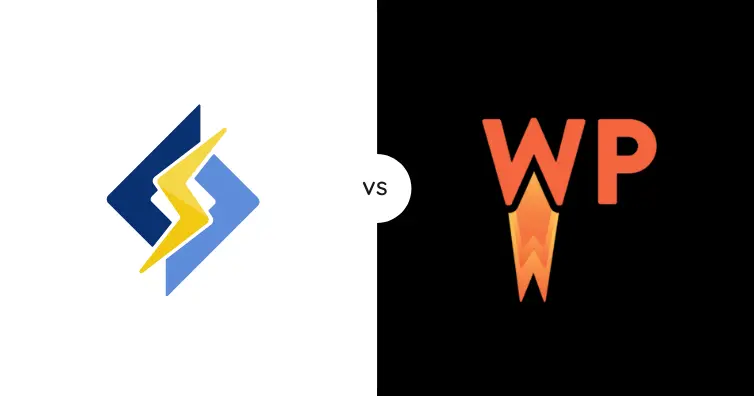
I’ll be blunt: LiteSpeed Cache is better than WP Rocket.
I broke down each plugin’s features and show you exactly why LiteSpeed Cache is faster than WP Rocket. Sure, I could have thrown up some before & after GTmetrix reports “comparing” them both, but you really have to test them yourself since each website is obviously different.
LiteSpeed Cache has several features not found in WP Rocket: server-side caching, image optimization, localizing JS files, and lazy loading HTML selectors. But arguably the biggest difference is between QUIC.cloud and RocketCDN, since RocketCDN is only a CDN which uses StackPath and has less PoPs, a slower Tbps, and less features than QUIC.cloud’s standard plan. QUIC.cloud includes things like HTML caching and DDoS protection while RocketCDN does not.
While WP Rocket is more user-friendly, it has a ways to go before catching up to LiteSpeed Cache. But to use all LiteSpeed Cache’s features, you will need to be using a LiteSpeed host.
| WP Rocket | LiteSpeed Cache | |
|---|---|---|
| Price | $49/year | Free |
| Server-level caching | x | ✓ |
| Critical CSS | ✓ | ✓ |
| Delay JavaScript | ✓ | ✓ |
| Remove unused CSS | Inline | Separate file |
| Preload links | ✓ | ✓ |
| Object cache | x | ✓ |
| Host third-party code locally | x | ✓ |
| Lazy render HTML elements | x | ✓ |
| Lazy load background images | Inline | Helper class |
| Add missing image dimensions | ✓ | ✓ |
| First time visit optimization | x | Guest mode |
| Control preloading | ✓ | ✓ |
| Advanced cache control | x | ✓ |
| ESI (edge side includes) | x | ✓ |
| Gravatar cache | x | ✓ |
| Limit post revisions | Delete all | Keep some |
| CDN | StackPath | QUIC.cloud |
| CDN PoPs | 60 | 73 (standard plan) |
| CDN price | $7.99/month+ | $.02-.08/GB |
| Dynamic caching | Paid | ✓ |
| Image optimization | x | ✓ |
| DDoS protection | x | ✓ |
- Server-Level Caching
- Image Optimization
- RocketCDN vs. QUIC.cloud
- Remove Unused CSS
- Lazy Load HTML Selectors
- Localize JavaScript Files
- Redis + Memcached Object Cache
- Guest Mode
- ESI
- Database Optimization
- Better Control (But Harder Configuration)
- LiteSpeed Cache Is Free
- LiteSpeed Cache Requires A LiteSpeed Server
- How To Setup LiteSpeed Cache’s Settings
- How To Setup WP Rocket’s Settings
- Join The LiteSpeed + WP Rocket Facebook Groups
1. Server-Level Caching
LiteSpeed Cache uses server-level caching which is faster than the file-based caching done by WP Rocket. It uses LSAPI for PHP processing which is faster than PHP-FPM and other forms of PHP. Very few cache plugins use server-level caching (SiteGround Optimizer and Kinsta’s MU plugin are some of the only ones). Even though faster caching may not directly improve your PageSpeed scores, you should see a noticeable improvement when clicking through your site.

2. Image Optimization
WP Rocket (or RocketCDN) don’t optimize images. This means you would either need to use an extra plugin like ShortPixel or a CDN service like Cloudflare Mirage + Polish, or Bunny Optimizer.
LiteSpeed Cache and QUIC do an excellent job with image optimization:
- Image compression
- WebP
- Remove EXIF data
- LQIP (low quality image placeholder) via QUIC
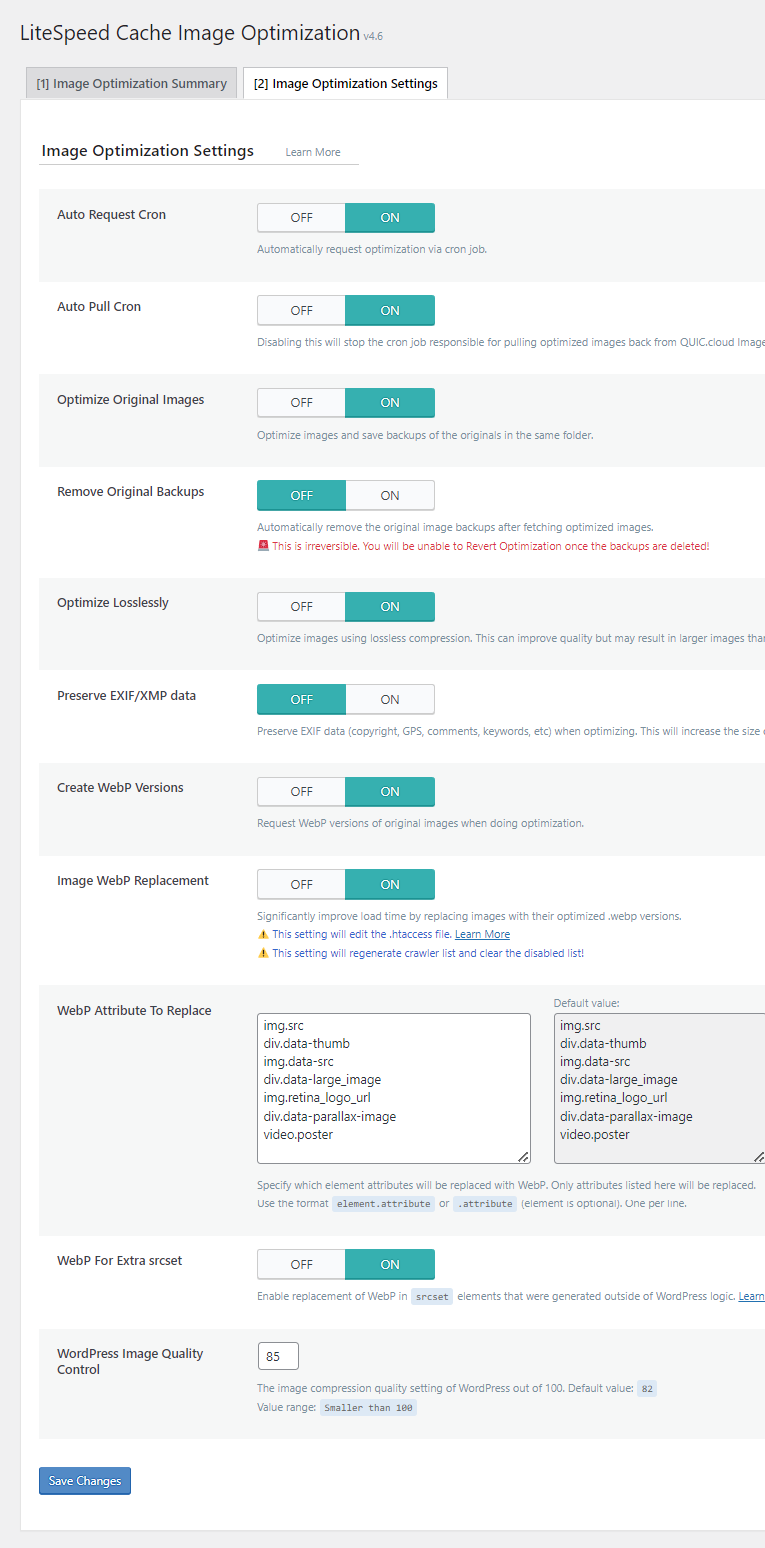
3. RocketCDN vs. QUIC.cloud
RocketCDN is only a CDN which serves files from StackPath (WP Rocket’s CDN partner). There are no other features beyond that. StackPath has 20 less PoPs than QUIC’s 70 and was removed from cdnperf.com after having major issues (QUIC.cloud has never been listed on cdnperf.com).
QUIC.cloud offers a free and standard plan, but their free plan only uses 6 PoPs and doesn’t include DDoS Protection, while their stand plan uses all 70 PoPs. Both plans use HTML caching (similar to Cloudflare’s APO) which is arguably the biggest benefit. QUIC.cloud’s CDN is set up through LiteSpeed Cache and includes a QUIC dashboard where it has many settings you can configure. RocketCDN doesn’t have a dashboard which leaves very little room for configuration.
Finally, RocketCDN advertises unlimited bandwidth for $7.99/mo. This is very misleading since you will be cut off if you use too much bandwidth and there have been many reports of this in Facebook Groups. QUIC.cloud is regional-based pricing from $.02 – .08/GB depending on which regions you select. They also give you a certain amount of free credits each month. Credits are applied when using both QUIC.cloud’s CDN as well as UCSS, CCSS, and LQIP in LiteSpeed Cache.
This makes QUIC.cloud CDN the obvious winner.
| RocketCDN | QUIC.cloud (Standard) | |
|---|---|---|
| PoPs | 60 | 73 |
| HTTP/3 | x | ✓ |
| HTML Caching | x | ✓ |
| DDoS Protection | x | ✓ |
| LQIP | x | ✓ |
| Unique CSS | x | ✓ |
| reCAPTCHA | x | ✓ |
| Restrict XML-RPC Requests | x | ✓ |
| Price | $7.99/mo (not unlimited) | $.02 – .08/GB |
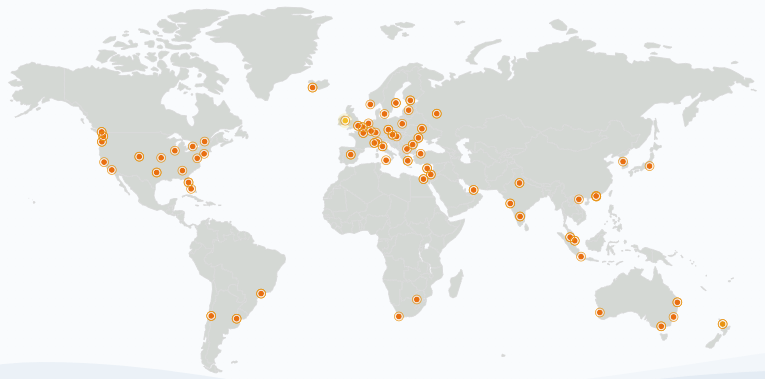

4. Remove Unused CSS
Both LiteSpeed Cache and WP Rocket can remove unused CSS.
As Vikas Sharma explains in a Facebook post, loading used CSS in a separate file is faster than loading it inline. While inline gives you better scores, it’s slower for visitors because inline CSS can’t be cached and increases the HTML size. Even Perfmatters says inline is “best for scores” while separate file is “best for user and perceived performance.” TLDR: separate file is better.
Because WP Rocket loads the used CSS inline (while LiteSpeed Cache loads used CSS in a separate file), this means LiteSpeed Cache optimizes for real-world visitors over “scores.”
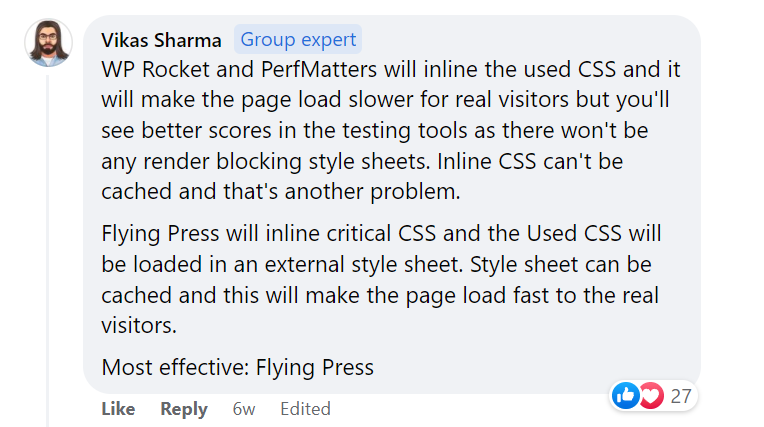
5. Lazy Load HTML Selectors
This is like lazy loading images only for HTML selectors.
It can improve LCP, TBT, and other metrics. #footer and #comments are common things you can lazy load, but you’ll want to check which selectors are used on your website. The FlyingPress documentation has a helpful video on doing this which can also be used for LiteSpeed Cache.
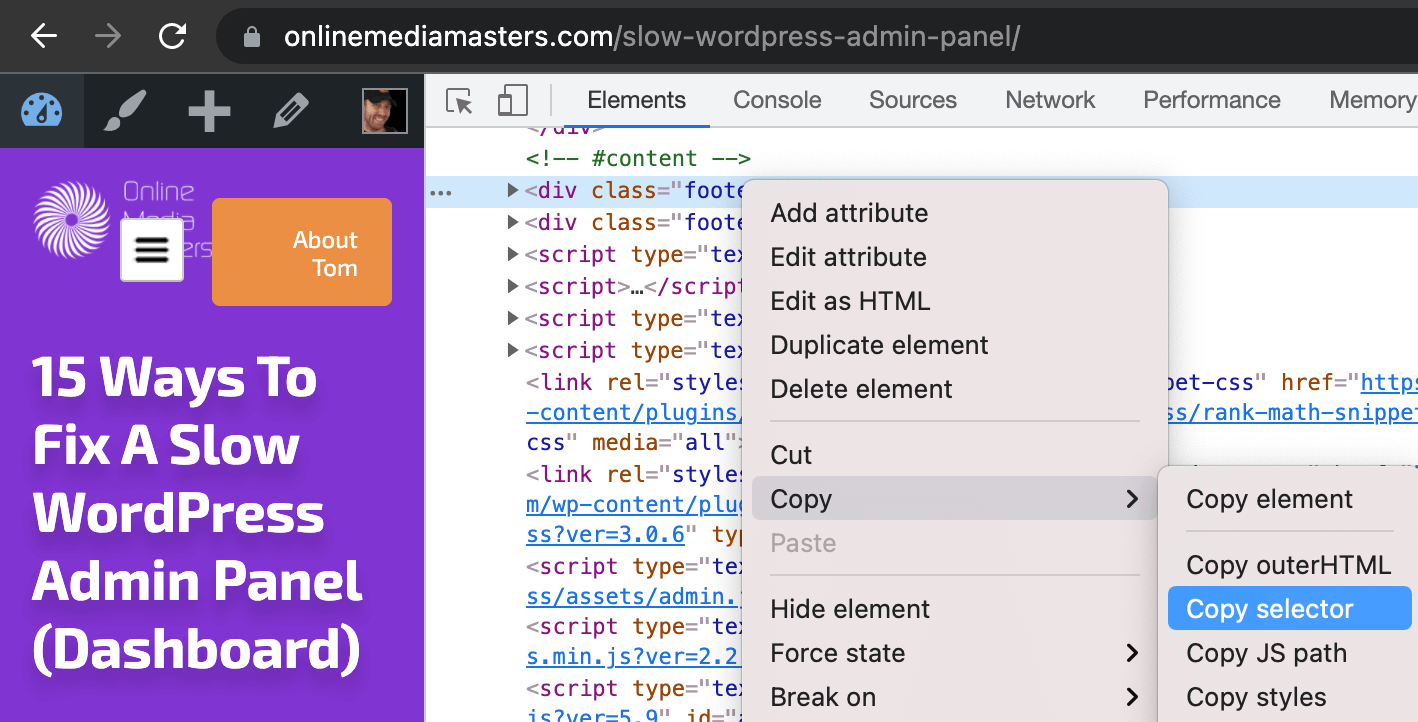

6. Localize JavaScript Files
If you’re having PageSpeed issues with third-party code, LiteSpeed Cache has a great feature to localize JavaScript files.
I listed some common files below but you should really look at your PageSpeed Insights report (or Chrome Dev Tools) to learn which JavaScript files you can localize. WP Rocket not only doesn’t have this, they don’t recommend host fonts locally (which I’ll have to disagree with).

### Popular scripts ###
https://platform.twitter.com/widgets.js
https://connect.facebook.net/en_US/fbevents.js
https://www.google-analytics.com/analytics.js
https://www.googletagmanager.com/gtm.js
https://www.googletagmanager.com/gtag/js
https://www.googletagservices.com/tag/js/gpt.js
https://www.googleoptimize.com/optimize.js
https://www.google.com/recaptcha/api.js
https://maps.google.com/maps/api/js
https://maps.googleapis.com/maps/api/js
https://pagead2.googlesyndication.com/pagead/js
https://platform.twitter.com/widgets.js
https://ajax.cloudflare.com/
https://cdnjs.cloudflare.com/
https://ajax.googleapis.com/ajax/
https://netdna.bootstrapcdn.com/
https://stackpath.bootstrapcdn.com/
https://code.jquery.com/
7. Redis + Memcached Object Cache
LiteSpeed Cache can integrate Redis/memcached for object caching (I prefer Redis especially for reducing memory usage, speeding up the admin, and for WooCommerce or larger, complex websites). WP Rocket has no object cache settings at all, so this is a bonus for LiteSpeed Cache. Redis/memcached can be found in LiteSpeed Cache’s object settings (only one can be enabled).
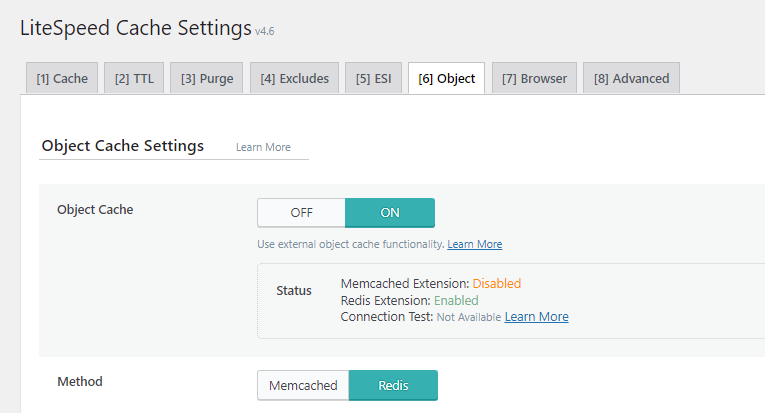
To pass the connection test, you’ll need to activate Redis or memcached in your hosting account. In cPanel, you would usually do this under Select PHP Version → PHP Extensions.

8. Guest Mode
The guest mode in LiteSpeed Cache can greatly improve load time for first time visitors.
It does this by saving time reading cookies, looking for cache varies, and processing ESI. It has great feedback in FB Groups, but it can increase CPU and doesn’t work with Cloudflare’s APO.
WP Rocket doesn’t include guest mode or any similar settings.

9. ESI
LiteSpeed Cache uses ESI, WP Rocket does not.
ESI (edge side includes) lets you cache eCommerce pages by “punching holes” on a page, are filled with shopping cart data and other private content, then the mixed-content page can be fully cached. This is one reason why LiteSpeed Cache is better for larger/WooCommerce sites.

10. Database Optimization
Both LiteSpeed Cache and WP Rocket clean your database of post revisions, transients, spam comments, etc. The main difference is WP Rocket can schedule ongoing database cleanups while you have to do it manually with LiteSpeed Cache. However, LiteSpeed Cache lets you control post revisions by setting a max number of post revisions and the age they expire. This lets you remove most post revisions, but not delete all of them in case you want some backups.
Neither plugin lets you go through your database tables and remove tables left behind by old plugins you deleted. I recommend WP-Optimize for doing a better cleaning of your database.
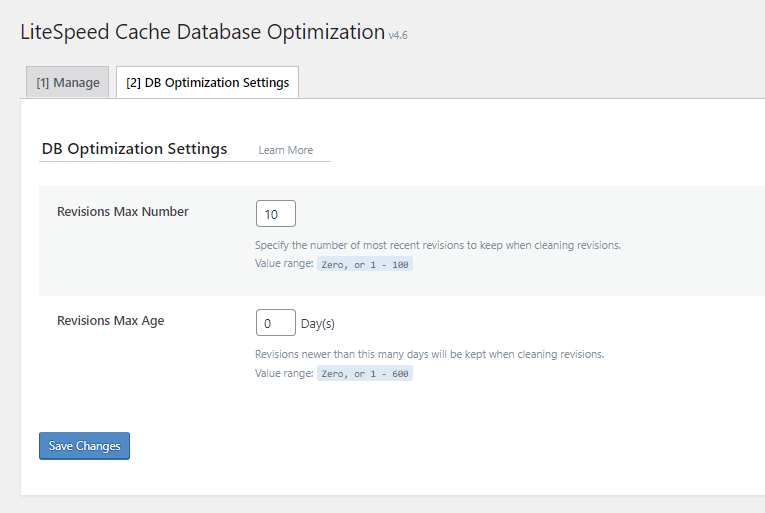
11. Better Control (But Harder Configuration)
The main downside of LiteSpeed Cache is it’s harder to configure than WP Rocket.
It takes time to learn what each setting does and whether it should be enabled or disabled. Make sure you follow an in-depth tutorial on configuring their settings since it’s different for each website and may require some testing in PageSpeed Insights. While LiteSpeed Cache gives you better control, the extensive settings can be a big con if you’re not familiar with the terms.
12. LiteSpeed Cache Is Free
LiteSpeed Cache is free when you use a LiteSpeed server. WP Rocket is $49/year for a single website. They also stopped offering renewal discounts for new customers like they used to.
WP Rocket does have a 10% off coupon if you sign up for their email list, but it’s an extra cost that could be put towards something else.

13. LiteSpeed Cache Requires A LiteSpeed Server
You can use LiteSpeed Cache on any server, but LiteSpeed’s exclusive features (shown on the plugin page) are only available when you use a LiteSpeed server. And since it includes key features like automatic page caching with QUIC + HTTP/3, you really want to use a LiteSpeed host to get the most out of it. WP Rocket can be used with any server and doesn’t limit features.
You must use a LiteSpeed host to use all LiteSpeed Cache’s features. I recommend NameHero (aff link) over other hosts like A2 since they’re faster with better support, feedback, and have a 4.6/5 TrustPilot rating. Hostinger writes fake reviews and is bad.

14. How To Setup LiteSpeed Cache’s Settings
See my LiteSpeed Cache tutorial.
These are meant to be used as a baseline, so configure it for your own site!
15. How To Setup WP Rocket’s Settings
See my WP Rocket tutorial.
Again, these are meant to be used as a baseline, make you configure it for your own site!
16. Join The LiteSpeed + WP Rocket Facebook Groups
Join the LiteSpeed and WP Rocket Facebook Groups – both are very helpful.
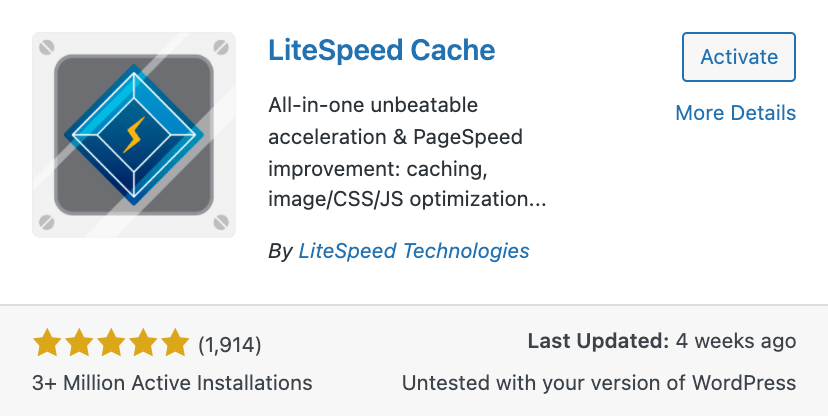
TLDR: LiteSpeed Cache is faster, free, and has a better CDN, but it’s more difficult to configure.
Cheers,
Tom


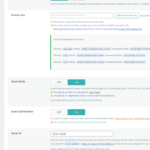
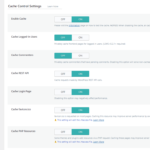
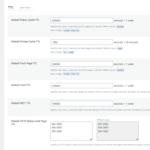
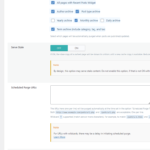

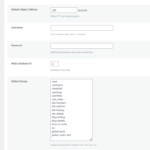
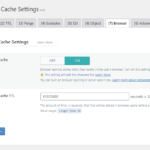
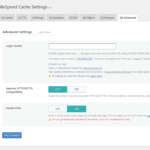
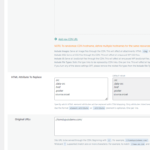
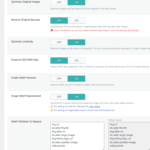
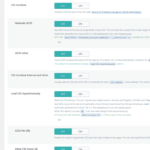
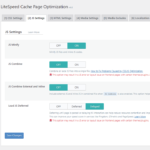
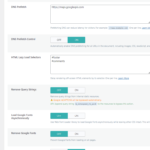
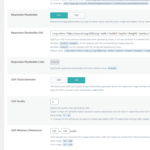
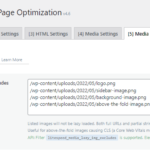
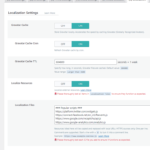
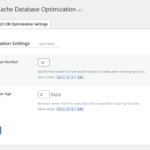
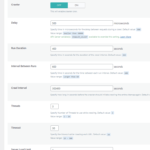


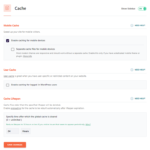
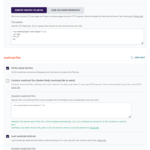
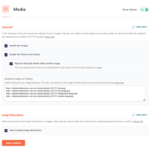
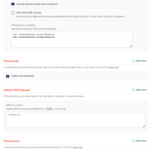

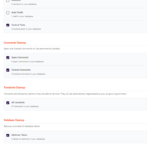

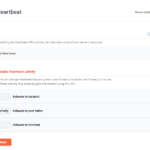




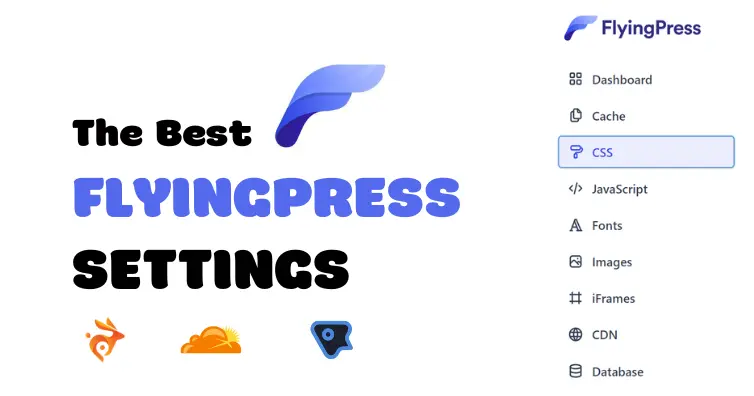
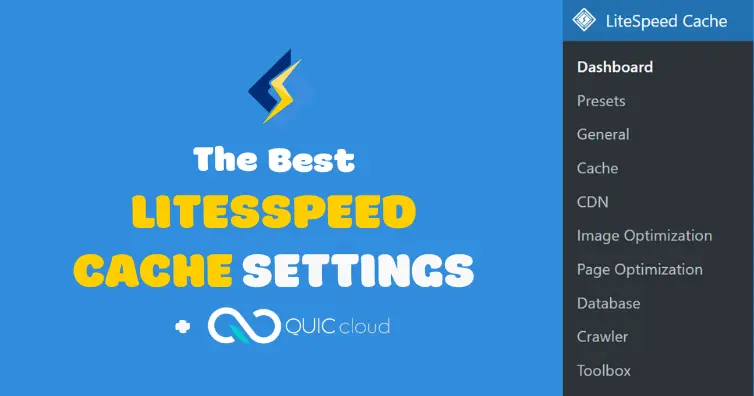

Tom, allow me to disagree with your article.
LSC might be faster for PageSpeed Insights (it really isn’t), but for real visitors WP Rocket is infinitely superior.
WP Rocket’s cache preload function trumps any other 537 functions in LSC.
LSC Crawler is not enabled on shared hosting. And I’ve heard a lot of complaints about Crawler on the official Facebook group.
I changed LSC to WP Rocket on all my sites and both in PageSpeed and for real visitors I felt a performance improvement.
Mainly for dynamic websites.
Hey André,
Yeah I agree the LSC crawler on shared hosting needs improvement. But I’m happy to agree to disagree. Curious to know if you’ve tried FlyingPress (maybe we can agree FlyingPress is faster than WP Rocket)?
I use WP-Rocket on igre.games and my site have better performance
Were you using a LiteSpeed server, did you configure the LiteSpeed Cache settings correctly, and setup QUIC.cloud’s standard plan? And when you say performance, does that mean core web vitals, browsing speed, load time? If you’re going to say that, it might help to share some details.
I am sorry nice tutorial followed it all, but this
I do not agree, since this year my VPS turned from NGNIX to Litespeed server with Litespeed caching plugin enabled, but WP rocket wins! The thing is with this litespeed plugin in Wordpress is that everytime I visit sites the next day it really takes a long time to load the site. Cause the cache is getting rebuild. But with WP rocket it is not. So WP rocket wins with speed for me :)
All good, sometimes one cache plugin does a better job for 1 website than the next. Did you try changing the crawler settings?
Hello,
Thank you for such a detailed guide, which helped me a lot. As a content producer/writer, I can understand how much effort you have put into this content.
I have a question for you. If we use LiteSpeed Web Server on our CentOS Cpanel, can we use WP-Rocket on the WordPress side? Or do we have to use LiteSpeed Cache if we have LiteSpeed Web Server?
You could include this type of question in your content as well. For example: “Can you use LiteSite Web Server with different cache plugins?” Etc. Your content should include a YouTube video and text-to-speech (my inner SEO is acting out). Also, loving the table comparison you got going on.
Kind regards,
Keep up the great work.
Yes! I’ll be doing more videos by the end of the year. Never though about text-to-speech, ty for the suggestion.
You can still use WP Rocket but I wouldn’t. LSC has server-side caching and more optimizations for core web vitals, plus a better CDN (QUIC.cloud) instead of RocketCDN. I’m personally not a fan of WP Rocket and think LSC and FlyingPress are better.
Awesome, Tom. This is the absolute best review. It is really helpful
Thanks Mike! Could have just said WP Rocket is better and collect aff commissions like most people, but that would be a lie :)
litespeed is much better. “But there’s a big problem with that Google Adsense doesn’t show ads.” Surprisingly, the litespeed team hasn’t been able to fix it till date.
Tom.
I knew this post was coming just a matter of time. Thanks for taking my previous feedback into consideration. Ya see… I told ya it will outperform WP-Rocket and ANY other cache plugin. ;)
I was the guy that said I have 40 plus plugins on my woocommerce site and I am getting near perfect scores (97ish) on Pagespeed, Gtmetix, AND Webpagetest. I also recommended to start using Webpagetest as it has more free features and granularity compared to Gtmetrix. ;)
One of my favorite LS features is the Guest Mode and Guest Mode Optimization. This automatically AND always serves cacheable landing page for an automated guest’s first time visit, and then attempts to update cache varies via AJAX. It’s amazing because first time visitors will always receive a cache version of your site, which will dramatically increase speeds 5 fold.
As a side note: please do an updated Cloudflare settings tutorial if you haven’t done so already. They came out with a few more speed enhancement features all under the Free version.
One that comes to mind is Early Hints which can increase load times by 30% in and of itself! Early Hints cache and sends 103 Early Hints responses with Link headers from your HTML pages. It allows browsers to preload linked assets before they see a 200 OK or other final response from the origin.
This setting is HUGE, I can’t stress it enough especially since it takes 1 second to activate LMAO!
Lastly, I am a hair away from deleting my WP-Optimize plugin and using LS instead since they have a whole section on Database optimization. I am only reluctant to pull the plug because LS doesn’t have the following options compared to its counterpart:
1. Remove unapproved comments
2. Clean post metadata
3. Clean comments metadata
4. Clean orphaned relationship data
What is your take Tom? Given the lack of these options, should I still keep WP-Optimize for the time being until LS becomes a little more comprehensive?
Sorry for the long post.
I very much appreciate this thorough blog. You’re doing a stupendous job. I love your content man and I just want to say, BIG THANK YOU again! You helped me a ton with become an expert in Wordpress optimizations!
God bless you!
Joe
Any time man! Glad you’re finding this helpful. I’ve got so much work to do with catching up with all this new stuff in the industry. I have like 100 posts to update and that Cloudflare settings one is a mess. I’ll try to get to it soon and yes, the early hints, APO, and other newish Cloudflare features are legit.
I don’t believe LiteSpeed Cache lets you go through your actual database tables and remove tables from old plugins. So if you already cleaned up those tables and aren’t planning on installing/deleting more plugins then you can delete it and just use LSC.
Yes, I need to do more with WebPageTest. Maybe at least just recommend it more to readers. Maybe just add a page with a list of tools and highlight WebPageTest as one of the main testing tools to use?
Really appreciate your feedback!